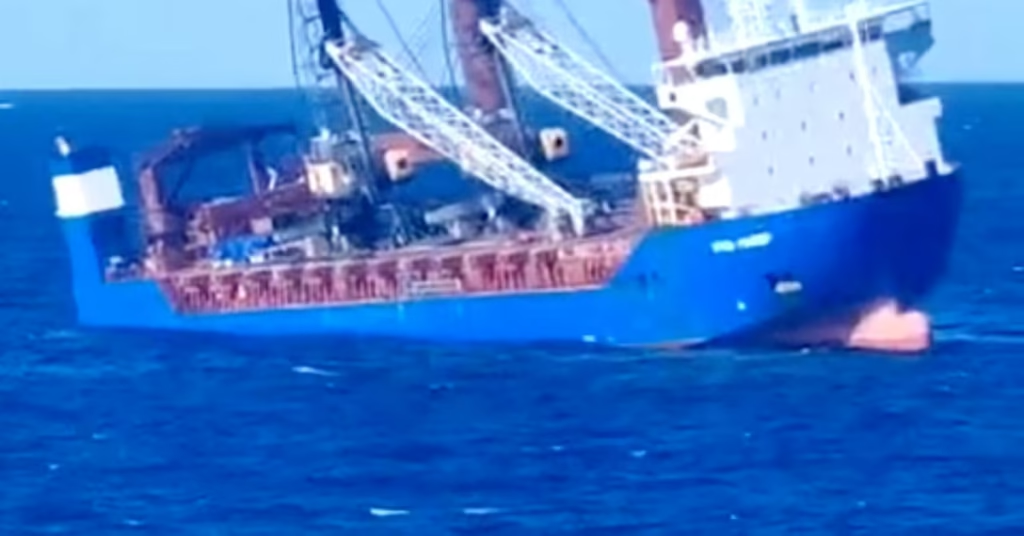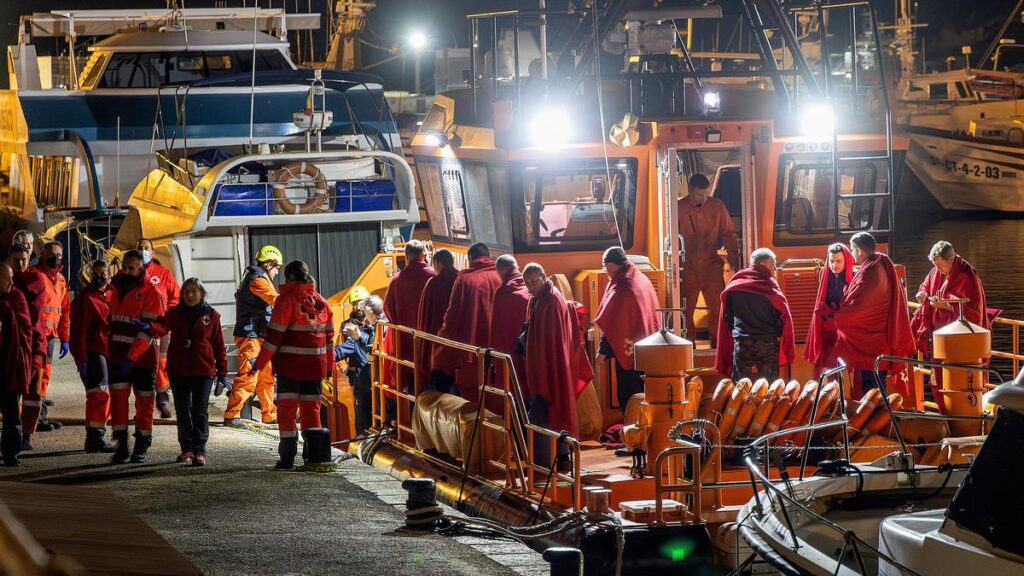A Russian cargo ship, the Ursa Major, sank in the Mediterranean Sea between Spain and Algeria on Monday, leaving two crew members missing, Spanish maritime authorities and the Russian Foreign Ministry confirmed Tuesday.

Fourteen crew members were rescued uninjured from a lifeboat and transferred to safety in Spain, according to Spain’s maritime rescue agency. Russian officials reported that the vessel began sinking following an explosion in the engine room.
The Ursa Major was owned by SK-Yug, a subsidiary of Oboronlogistika, a Russian shipping company tied to the country’s defense ministry. Oboronlogistika is under U.S. and European Union sanctions due to its military affiliations.
Spanish authorities reported that the cargo ship carried empty containers and two cranes but did not speculate on the cause of the explosion or sinking.
In a Dec. 20 statement, Oboronlogistika said the vessel was en route to Vladivostok in Russia’s far east, transporting two cranes weighing 380 tons each. The ship departed from St. Petersburg 12 days prior, Russian state news agency RIA Novosti reported.

Spanish maritime officials said they received an alert around 1 p.m. Monday when the vessel was approximately 57 nautical miles (106 kilometers) off the coast of Almería in southeastern Spain. The distress call described poor weather conditions, a lifeboat adrift in the water, and the Ursa Major listing.
A Russian warship reportedly arrived later that day to assist with rescue operations. The 142-meter (466-foot) cargo ship sank around midnight. The Russian embassy in Spain said it is investigating the incident and coordinating with Spanish authorities.
At the time of the incident, another Russian cargo ship, Sparta, was navigating the western Mediterranean en route to Egypt’s Port Said. The Sparta, also under U.S. sanctions, was tracked using MarineTraffic.com.
While some Russian vessels opt for the Northern Sea Route through the Arctic, particularly in summer months, the southern route through the Mediterranean and Suez Canal remains the preferred winter option for shipping between St. Petersburg and Vladivostok.
Spanish rescue units remained on-site Tuesday to monitor the area for potential pollution and remove debris hazardous to other vessels.



